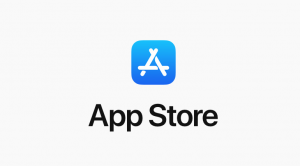Another salvo in the legal battle between Apple and its developers was fired last month. The EU Commission is following up on a complaint from Spotify that says Apple’s practices are anti-competitive and are designed to block the popular music streaming service. Apple has two policies: one that prevent app creators from linking payments from within the app other than subscriptions, and another that limits users from making payments other than in-app purchases. These two policies result in developers having to pay Apple commissions on these payment streams: which amount to nearly a third for the first year and 15% in subsequent years.
 This follows the US Supreme Court ruling that iPhone customers could sue Apple for allegedly operating the App Store as a monopoly that overcharges people for software. So far no action has happened as a result of this case and legal experts say it will probably take several years to wind its way through the courts. There was another lawsuit filed in US District Court in San Jose by two app developers that also accuse Apple of being a monopolist.
This follows the US Supreme Court ruling that iPhone customers could sue Apple for allegedly operating the App Store as a monopoly that overcharges people for software. So far no action has happened as a result of this case and legal experts say it will probably take several years to wind its way through the courts. There was another lawsuit filed in US District Court in San Jose by two app developers that also accuse Apple of being a monopolist.
Andy Yen of ProtonMail posted this blog entry last month, saying “We have come to believe Apple has created a dangerous new normal allowing it to abuse its monopoly power through punitive fees and censorship that stifles technological progress, creative freedom, and human rights. Even worse, it has created a precedent that encourages other tech monopolies to engage in the same abuses.” He states further that “It is hard to stay competitive if you are forced to pay your competitor 30% of all of your earnings.”
Of course, Apple disputes all of these charges, saying that it is just a digital mall where the tenants (the developers) are just paying rent. Nevertheless, it is the only mall when it comes to providing iOS apps. Apple claims it needs some compensation to screen out malware and badly coded apps and claims that the vast majority of apps in its store are free with no payments collected from developers. “We only collect a commission from developers when a digital good or service is delivered through an app.” The company explained its practices in this post in May, and cited a number of instances where third-party app developers compete with its own apps such as iCloud storage, the Camera, Maps and Mail apps.
Tim Cook thinks nobody “reasonable is going to come to the conclusion that Apple’s a monopoly. Our share is much more modest. We don’t have a dominant position in any market.” I disagree. From where I sit this seems very similar to what Microsoft went through back in the 1990s. You might remember that the US government ruled its Windows and anti-competitive practices were considered a monopoly.
There are some differences between Microsoft then and Apple now: Apple doesn’t have a dominant share in mobile OS outside of the US (Google’s Android has 75% of the market). whereas Microsoft had 90% of the PC OS market. But still, the Apple App Store represents a high barrier for app developers to enter, and consumers do suffer as a result.
Protonmail’s blog has further thoughts about the App Store monopoly issues posted here: https://protonmail.com/blog/big-tech-congress/
Pingback: Turkish tactics with blocking social media | Web Informant